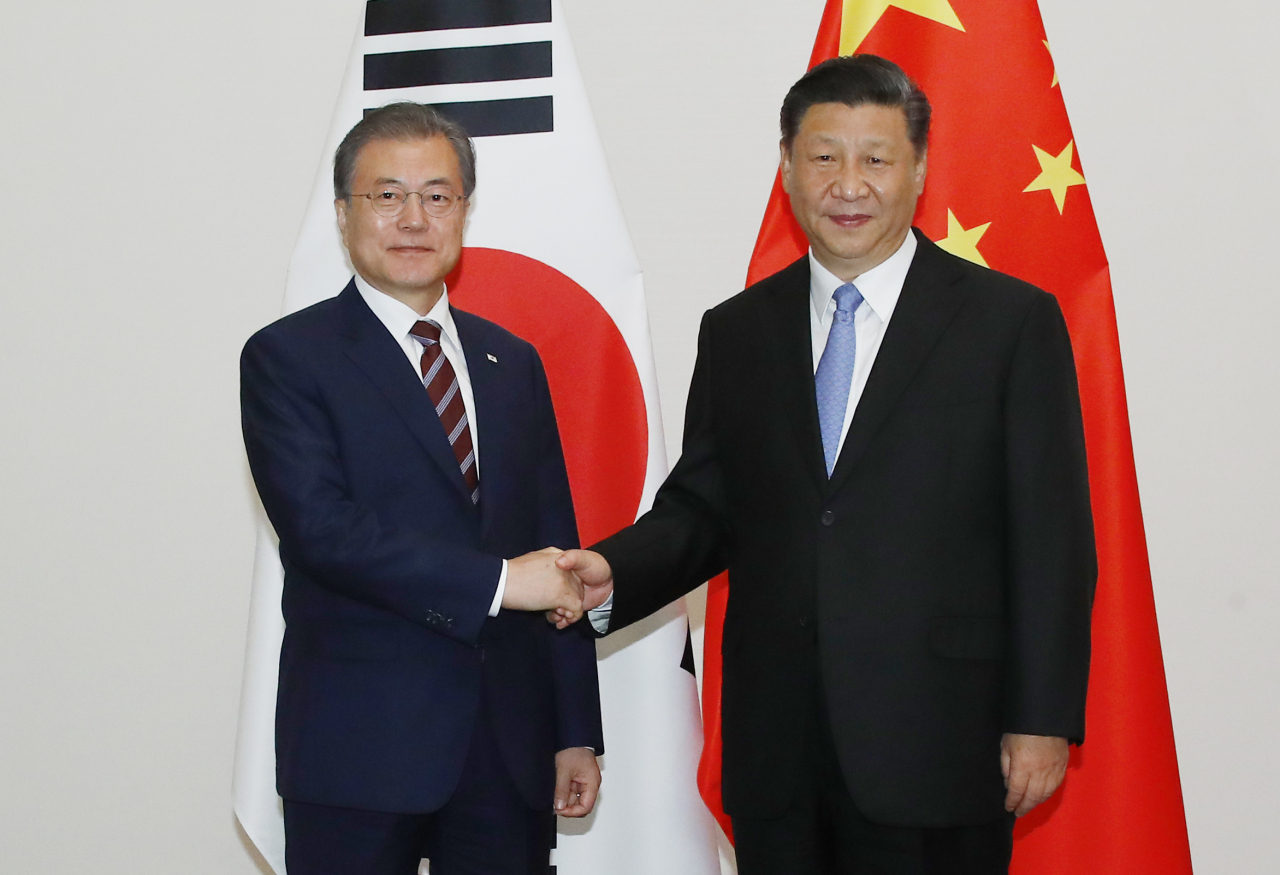June 28, 2019
The two leaders had met in the days leading up to the G20 summit.
North Korean leader Kim Jong-un’s intentions regarding denuclearization and dialogue remain unchanged, and he is open to engaging with South Korea, Chinese President Xi Jinping said Thursday.
At the summit meeting with President Moon Jae-in held in Osaka, Japan, Xi relayed these and other plans Kim has, briefing his South Korean counterpart on his trip to Pyongyang.
“(Kim’s) intentions on denuclearization are unchanged,” Xi was quoted as saying by Cheong Wa Dae spokesperson Ko Min-jung.
 |
Xi had visited Pyongyang — his first as China’s leader — on a two-day state visit starting June 20 and held his fifth summit with Kim.
“Second, (Kim) is following a new strategic direction, focusing on economic development and improving people’s livelihood, and hopes for the external environment to be improved.”
According to Ko, Xi was relaying Kim’s words, rather than expressing his personal views on North Korea. Xi also said that Kim expressed his intention to “maintain perseverance” and that he is willing to seek reconciliation and cooperation with the South.
The issue of THAAD missile defense system, whose deployment in the South was met by severe economic retaliation from Beijing, was also raised at the summit, a Cheong Wa Dae official said on condition of anonymity.
According to the official, THAAD was first raised by Xi, and Moon responded by saying that such issues are part of the reason why the denuclearization issue must be resolved.
China has strongly opposed the deployment of the system in the South, claiming that the US defense system poses a threat to its national security. Seoul and the US, for their part, maintain that the sole purpose of the THAAD system is to defend against North Korean missiles.
At the meeting, Moon also touched on Seoul-Beijing negotiations on the bilateral free trade agreement saying that he hopes for continued cooperation between the two countries. Xi said that the two countries should seek close cooperation in multilateral trade.
According to a Cheong Wa Dae official, US-China trade issues and Huawei Technologies were not discussed in depth, but that Moon expressed his wish to avoid “a situation where (South Korea) will be required to choose between the two countries” due to the US-China trade conflict.
Aside from North Korea and trade issues, the two leaders discussed ways to increase bilateral cooperation including more direct interactions between high-level government officials.
Regarding Seoul-Beijing relations, Moon and Xi agreed to seek stronger cooperation in a range of areas, including economic, environmental and cultural issues, Cheong Wa Dae said.
“The two leaders discussed environmental issues such as air pollution, and Xi said that as China is making a 10-fold effort in environmental protection, (it) will actively cooperate,” Ko said.
China is thought to be the source of a significant portion of particulate matter air pollution that plagues South Korea.
Seoul’s presidential office also said that the two leaders agreed to arrange Xi’s visit to Seoul through diplomatic channels.
Following the summit, Moon wrapped up the day with a meeting with Japan-based Koreans. On Friday, Moon is scheduled to attend G-20 summit conferences and a string of bilateral summits.
In addition to meeting Xi, the South Korean president is set to hold summit meetings with several heads of states, including Russian President Vladimir Putin, during his three-day stay in Japan.


